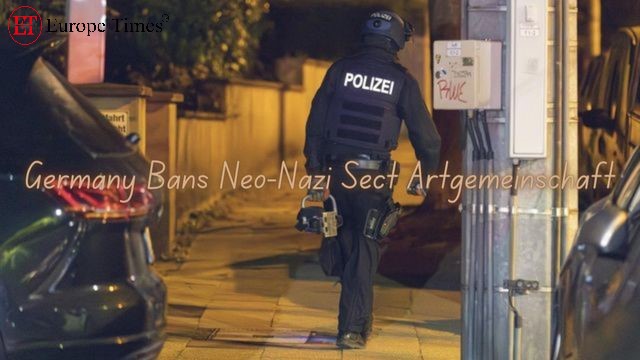Germany Takes Action Against Neo-Nazi Group Artgemeinschaft for Child Targeting

Germany has imposed a ban on the far-right organization Artgemeinschaft due to its dissemination of Nazi ideology to children and young individuals. The country’s interior minister has labeled the group as “deeply racist and antisemitic” and accused it of attempting to cultivate new adversaries of the constitution.
Artgemeinschaft employed Nazi-era literature and cultural events as vehicles for propagating its ideology. Law enforcement authorities have conducted searches in numerous residences and offices associated with the group across 12 German states.
German Interior Minister Nancy Faeser stated, “This represents another significant blow against right-wing extremism and against those who continue to propagate Nazi ideologies to this day.”
Artgemeinschaft, which roughly translates to “racial community,” reportedly had around 150 members, according to the interior ministry. The ministry revealed that the group provided guidance to its members on selecting partners with North or Central European backgrounds, in alignment with their “racial preservation” ideology.
The sect operated an online bookstore and regularly hosted cultural events, drawing several hundred attendees. It portrayed itself as “Germany’s largest pagan community.”
Authorities assert that the group used the facade of “pseudo-religious Germanic beliefs” to promote a worldview that violates human dignity.
The ban encompasses the group’s website, publications, and Familienwerk, another affiliated association.
Recently, Germany also outlawed Hammerskins, another neo-Nazi organization known for its role in organizing far-right concerts and selling racist music. Hammerskins, founded in the US in the late 1980s, was the last major right-wing skinhead group in Germany after the banning of another group, Blood and Honour, in 2000. It was heavily involved in establishing neo-Nazi music labels, distributing antisemitic records, and organizing clandestine music events.
Germany’s interior minister emphasized that “right-wing extremism has many faces,” noting that while Artgemeinschaft operated differently from Hammerskins, it was “no less dangerous.”
Artgemeinschaft is one of Germany’s oldest neo-Nazi groups and played a significant role in connecting various far-right and neo-Nazi factions in the country. Stephan Ernst, who assassinated prominent regional politician Walter Lübcke in 2019 due to “racism and xenophobia,” was a member of the group, according to German intelligence. Media reports also suggest that members of the group had ties to Ralf Wohlleben, a neo-Nazi convicted of supporting a notorious cell responsible for ten racially motivated murders in Germany.
Germany’s domestic intelligence agency estimates that there are 38,800 individuals active in the country’s right-wing extremist scene, with over a third of them considered “potentially violent.”
Picture Courtesy: Google/images are subject to copyright
